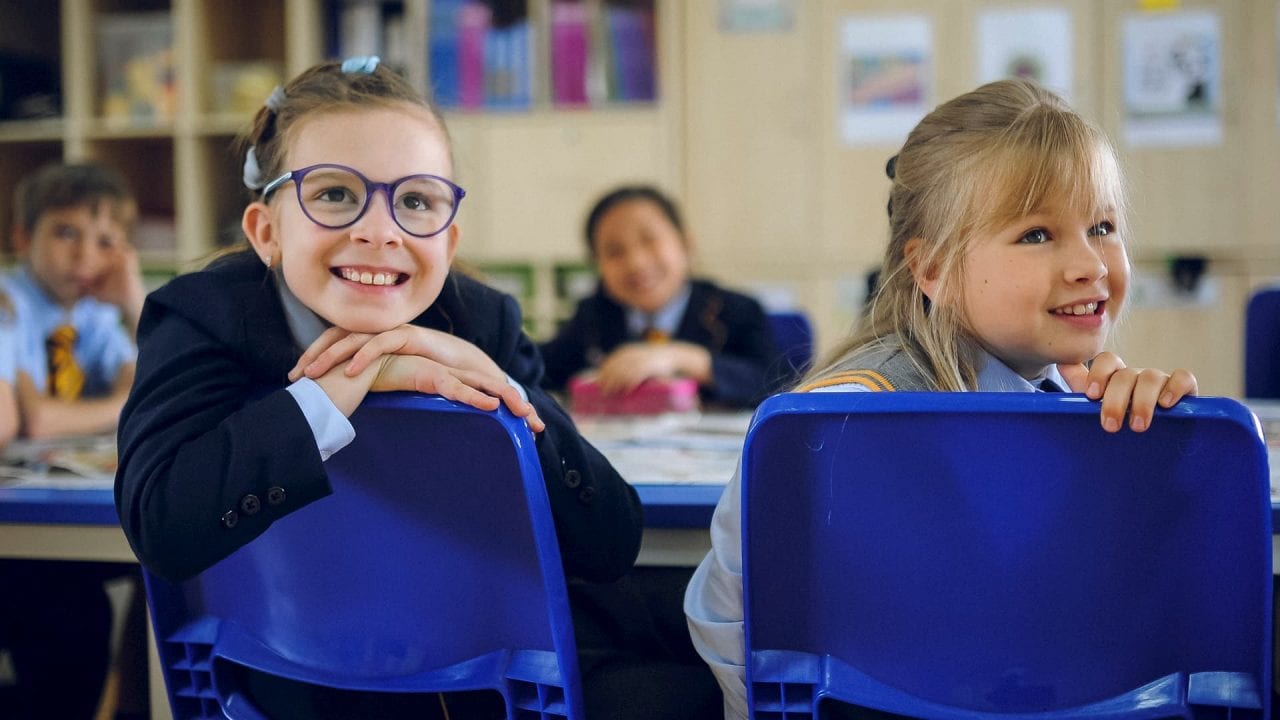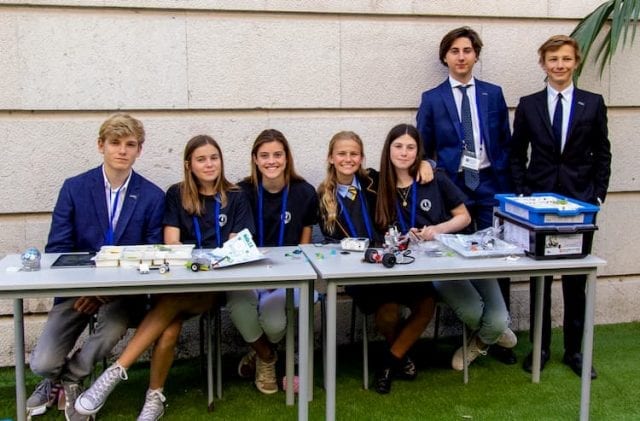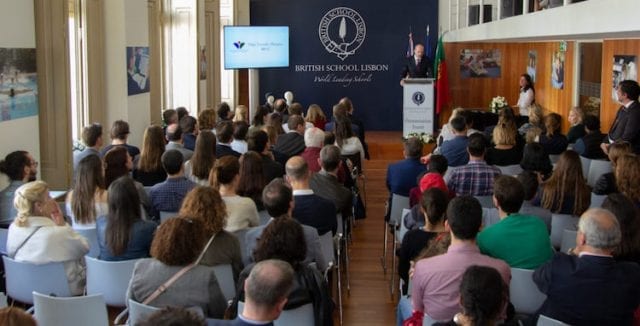Good news, there’s a new international school in Portugal – the British School of Lisbon. From what we’ve seen, it is clear that the British School of Lisbon will be a key player in the ever-growing community of expats who are currently living or moving to Portugal. This new international school is located in Cais do Sodré, and it will be open to children from Nursery (3 years old) to Year 4 (8 years old). It will be the first school in Lisbon teaching the British curriculum. We’ve had a chat with David Laird, the newly appointed headmaster, who’s just recently moved to Portugal from the British School of Guangzhou in China. We wanted to know what parents and students can expect from the new school in the upcoming academic year (2019/2020).
British School of Lisbon: An Interview with the Headmaster Mr. David Laird

1. What will be the ethos of the British School of Lisbon?
The ethos, for me, will be really about building confidence in our students. We really want to cater to each and every child and recognize them as individuals. And the way we teach academically, socially and personally will be very much geared toward each child in the school.
2. What do you think makes this international school stand out from the rest in the area?
It will be the first international school in Lisbon following the English National Curriculum, which is an excellent and transferable curriculum that’s recognized worldwide. Students that go through it, have gone on to great universities around the world. The teachers that we’re appointing are English National Curriculum experts. They are qualified teachers from the U.K. that we’re bringing out to Lisbon. Some of them might already be based in other international schools around the world. But they all have the expertise in what we’re offering. In terms of what we’ll be teaching, STEAM, Science Technology Engineering Arts and Maths, will play a huge part in our curriculum. We will have robotics, coding, and music, which will be a big feature of our school and what we offer. At the same time, while all that innovation and all the opportunity that we will offer as a school, we will also be focusing on created those basic foundations. Learning to calculate mentally quickly, learning to write stories, read books.
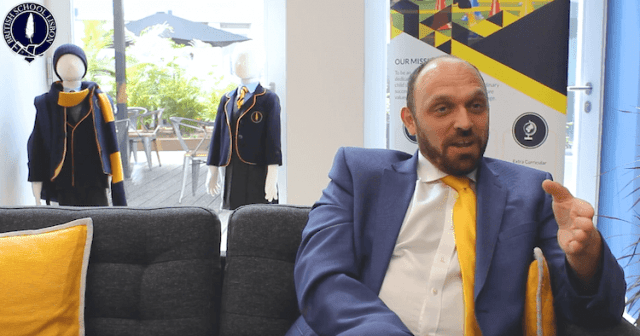
3. As a British International School, what do you think are the main strengths of the English curriculum?
The English National Curriculum is taught all around the world. It’s an incredibly broad and transferable curriculum that offers a structure, rigor, and basis that sometimes gets missed by those other curriculums.
4. It is important to encourage creativity, individuality, and independence. How will your school and your teaching staff integrate child lead learning into the curriculum?
It is a key theme in education, and it’s almost the buzzword in education today. I think that we’ve got to consider very carefully what that means because child-led learning isn’t for me just children going into the school, and the teachers say: ‘what are we going to do today?” and the children lead the learning. It’s more complex than that. You need to get children to a point where they can lead their own learning. And there’s a lot of work that goes in before you can get to that stage. So I go back to those basics, that baseline of excellent practice, that baseline of learning. And making sure that we’ve got those core foundations in place. So when children go into their secondary education they’re able to lead their own learning and go in a direction that they choose to go. Do you want to know more about the British School of Lisbon? Click to find out more details about the school.
5. How do you differentiate work? Are special provisions made for pupils with Special Educational Needs (SEN) and those who are Gifted and Talented?
Differentiation will be a focus for every teacher, catering to the needs of the individual child in the classroom. It’s not just about “one lesson fits all”. Again it’s about pinpointing what challenge needs to be set for each individual and making sure they’re pushed. In terms of gifted and talented and special educational needs, I think we can get caught up in focusing too much on the different ends of the spectrum. For me, it’s about ensuring that every child in the class, no matter what point they’re at in their learning, is academically challenged. And that would be the focus of the teachers.
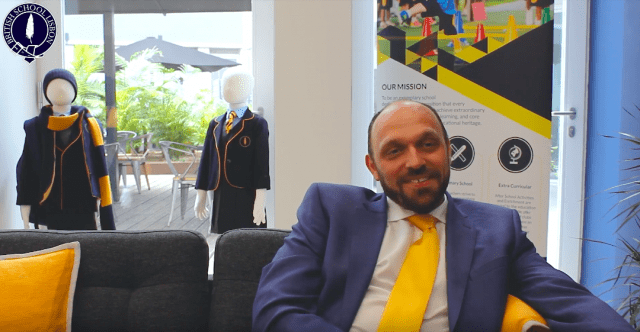
6. What do you think of technology in the classroom and how has it been integrated into the lessons?
Well, I think technology is a big issue at the moment in the world. How much screen time children have, on iPad’s and computers. And parents worry about this, and rightfully so. However, what we’ve got to recognize is that technology is now a massive part of our world, whether we like it or not. Interestingly the top five employers today, that pay the big grossing salaries didn’t exist when I was in school. So, as a school, we’ve got to be prepared to adapt our curriculum, our teaching and learning to make sure that we meet the needs of the jobs that don’t yet exist. And the only way to do that is by staying ahead of the game. Continually innovating in the classroom. We’ll have iPad’s. Every classroom will have an interactive whiteboard. There’ll be laptop computers. A big focus on mobile technology, coding, and STEAM. We’ll have a robotics lab, children will be able to go to that lab, they’ll be able to build their robots.
7. How do you approach discipline and what role does it play in learning?
It’s interesting because I’ve worked for many international schools. My last schools were The British School of Beijing and The British School of Guangzhou. These are schools that The Schools Trust has a connection with from the past. And they’ve been a pleasure to work in because you as a teacher can focus on what your core job is: teaching. Rather than focusing on the negative, you focus on the positive, you focus on what children do well. And you reward them for doing well. Through house point systems, through marble reward charts, where they collectively as a class has to reach a number of marbles and then they get a reward when they’ve achieved a certain number. It’s about recognizing excellent attendance and when children have created something special. It’s about sharing that with the school community. So it’s more based on positivity rather than the old fashioned negativity of you’ve done that wrong and therefore you will have detention. By having that assertive discipline policy which is all about rewarding the excellence.
8. How do you encourage and foster a positive home-school relationship?
Teachers and parents must work together for the betterment of their children. If you only get one side doing all the work, it’s not going to work. To foster those good relationships, we have an open door policy at our school. We welcome parents in, we communicate with parents regularly. One example of that is that we’ll be offering parents a daily email. So every day when the student comes home parents can check their inbox.

9. You’ve obviously traveled a lot and lived in many countries, do you have any tips on what activities parents and children can participate in order to adapt to a new city?
As well as being a school, we are part of the community, and we’ll be offering a community to all parents. So when the school is open, it’ll be to get involved in school activities that we’ll offer. The room that we’re sitting in now is currently an admissions office but we’re going to turn it into a coffee shop for our parent community. So it’s a place for them to come, sit down, have a coffee, get to know different community members. The one piece of advice I would have is to get involved in the school community, that’s your kind of gateway to really feeling settled, and at home, and being part of a community.
10. If you could sum up the British International School of Lisbon in 3 words, what would it be?
Innovative, experienced and fun. Make an appointment or pop into our admissions office. Come and speak to us and see us, and see what we’re all about.
11. Finally, a message for all the parents who might still be deciding what school to chose for the next school year.
I would say ‘Yes, of course, it is!’ But I would advise any parent to always go and have a look. And come and see, and get that feel. You walk into it, you look around and you just get the feeling that it’s warm, it’s welcoming, it’s inviting. This is the right place to send my child to. Are interested in booking a visit to the school? Contact the British School of Lisbon or call: +351 211 511 942

